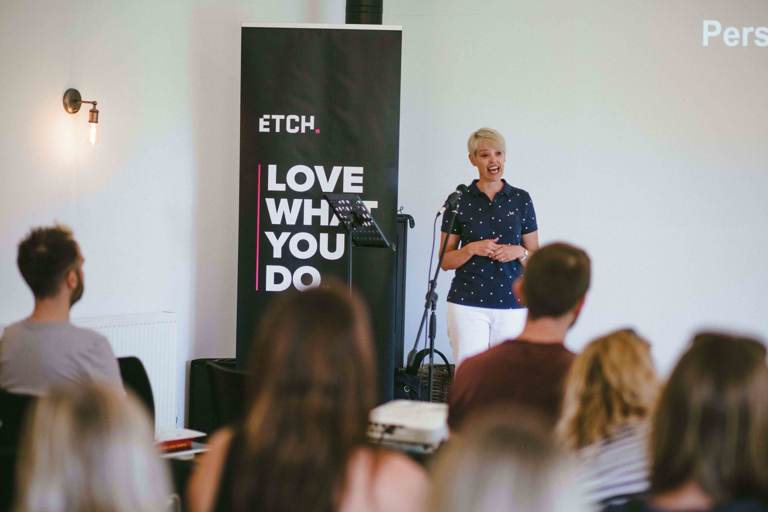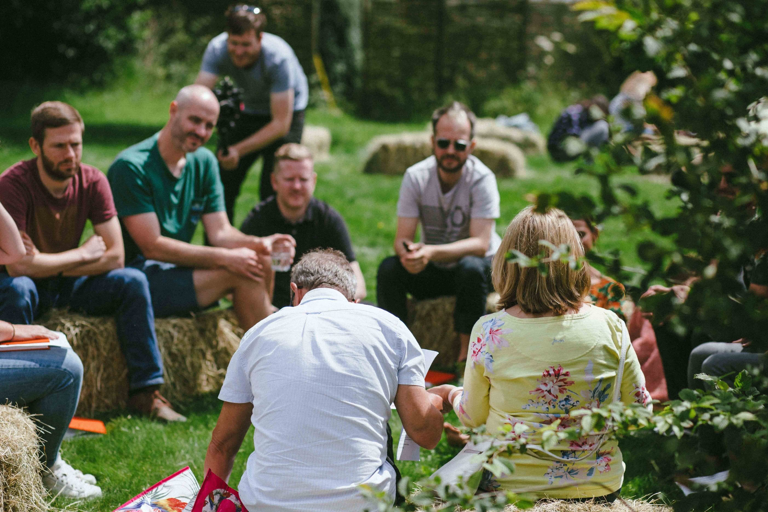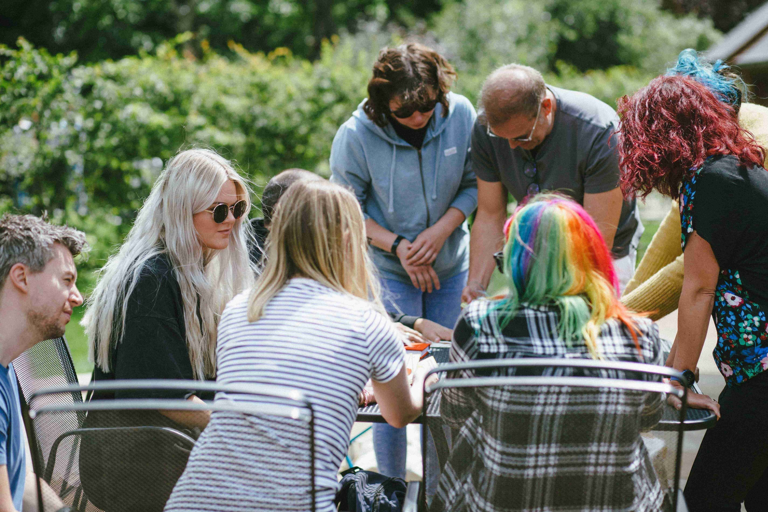What is the Etch Community?
For contractors, freelancers, and the self-employed interested in knowing more about the Etch Community, in this interview with Etch Co-owner Shelly Frame, we understand much more about why Etch created the Etch Community and how you, Etch, and their clients can benefit.

What is the Etch Community?
The Etch Community is an operating system that brings the multiple skillsets of individuals together under one roof. It's a mutually beneficial model that gives self-employed people a platform to grow and a place to belong whilst giving Etch the ability to deliver a more holistic service offering demanded in today's market.
Why did you want to create the Etch Community?
Inspired by game theory (interdependent decision making considering all parties possible decisions and strategies), we wanted to establish a different way of working. By leveraging the power of collective intelligence (shared or group intelligence that emerges from many individuals' collaboration, collaborative efforts, and competition), The Etch Community helps us to deliver a superior offering.
There is a need for digital and tech companies to think differently about whom they employ and how. Companies can only deliver holistic service offerings by having a more embracive labour force and a more fluid labour force that can adopt an all-inclusive operating model that allows the fluidity between self-employed staff and employed staff. At Etch, this is where we differ by introducing The Etch Community.
We have been doing this for quite some time - being inclusive with our contractors and full-time employees. But what's changed, mainly through the pandemic, is that it's crystallised that people want to work a different way. Contractors wish to be part of something more, but staff want to work another way. And the market is moving this way. From the acceleration of the multiple technology stacks to the impact of ecosystems - today's market demands more.
Many agencies are out there, all vying for the same turf in the marketplace. So the argument is, why don't we all just work together? Everybody's competing. Everybody's stuck at various stages of business growth. Everybody lacks enough labour resources, doesn't have enough capital resources, and doesn't have enough commercial expertise.
But if you come together, you've got a higher chance of sharing resources in areas you lack. With Etch Community, you can certainly accomplish that.

How does it differ from most other agencies working with contractors and freelancers?
Most of the agencies will be using external resources as an additional labour force to their permanent staff. But I don't know any other agency that celebrates it. We are actively celebrating a different way to work. We are proud to target ourselves to deliver 50% of our turnover by external resources.
We're pioneering a labour ecosystem. It's something we've always dabbled in, but we're now crystallising it more robustly and rolling out a model that everybody can plug in to. Whilst we have been more inclusive for some time now, it's been very reliant on our efforts to be inclusive. It relies on active diligence when you don't have an infrastructure behind it. So, our model is much more intentional. More deliberate in rolling out to hold everybody together.
How do the self-employed benefit from the Etch Community?
We have created an environment where everybody benefits. Etch benefits by having a larger pool of skill sets. And the self-employed benefit by being exposed to more projects, better projects, high-level projects; they can collaborate with other contractors, other staff within Etch. There are other benefits like a referral scheme as well.
Research has found that the number one negative of going self-employed is that you don't have a sense of belonging. And you don't have a sense of team all working together on one project for a common purpose. Why can't we be self-employed and benefit from being employed? So the main benefit of the Etch Community is a sense of belonging. For a contractor, it's astounding to be treated the same as an employee.
Whether you're a freelancer or contractor happy to work on your own, or if you're looking to build your business and employ more people, we can help you develop your skillset and develop your business. We've developed essential skills in business growth over the last 20 years. We can extend our knowledge and experience to help other businesses grow through mentoring, for example.

How do you decide who to onboard?
Part of the Etch community is plugging self-employed people into the fullness of Etch, which is exposing trade secrets, client portfolios, our methodologies. It's a high-risk strategy on our part. But I don't think we can be all-inclusive without taking that big jump.
But we're mitigating any risk. Onboarding includes value-based assessment, so it's more than just your skill set that we look at. We're also looking for individuals operating as self-employed for a while. There is an appreciation of another party's risk and reward from more experienced contractors. There is a mutual understanding of how hard it is to get clients and how easy it is to lose clients - so it keeps you on your toes in delivery, mindset, and conduct.
What does success look like with The Etch Community?
Success to us is getting businesses further, faster. In the context of Etch Community, it's about growing a contractor's company and skill set further, faster.
We have always side-lined the pursuit of profit. We believe that money just gets in the way of success. If you pursue something of a higher order, like backing someone else's success, well, when they succeed, you naturally succeed. Everybody wins, grows, and lands up partaking in a bigger prize.
But to do that is to pursue something different to profit. So, for us, it's to get people further in their self-employment. Business is not about profit; it's about relationships, and when relationships are strong between interconnected parties, you achieve more. That's what we hope for the Etch Community. It's not just a resourcing pool; it's a collective of people that people feel connected to and a part of.

